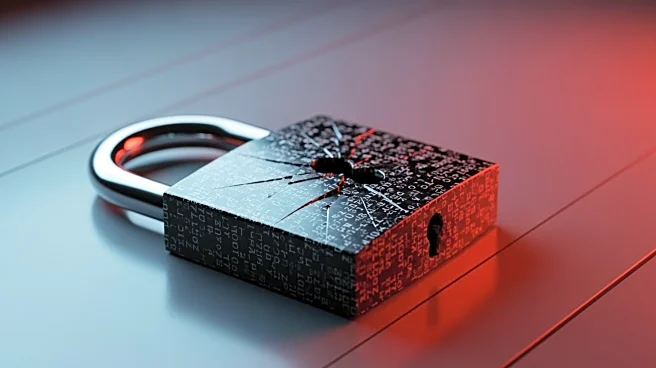What's Happening?
Russian state-backed hackers, identified as the ColdRiver group, are employing fake 'I am not a robot' CAPTCHA pages to distribute new strains of espionage malware. This tactic represents an evolution
in their approach, as reported by Google Cloud's Threat Intelligence Group (GTIG). The group, also known by aliases such as Star Blizzard, UNC4057, or Callisto, has shifted from their previously exposed LostKeys malware to a new suite of tools named NOROBOT, YESROBOT, and MAYBEROBOT. These tools are designed to evade detection through complex delivery chains and encrypted payloads. The hackers target specific organizations and individuals, using server-side filtering to ensure the malware reaches only selected victims, complicating large-scale detection efforts.
Why It's Important?
The development is significant as it highlights the ongoing threat posed by state-backed cyber espionage groups targeting Western governments, think tanks, and media organizations. The use of sophisticated techniques like fake CAPTCHA pages and encrypted payloads indicates a high level of technical capability and intent to bypass traditional security measures. This poses a challenge for global security vendors, who may not have developed or prioritized signatures for these new attacks. The potential impact on U.S. industries and public policy is considerable, as compromised entities could face data breaches, loss of sensitive information, and disruption of operations. The situation underscores the need for enhanced cybersecurity measures and international cooperation to combat such threats.
What's Next?
As the ColdRiver group continues to refine its tactics, cybersecurity firms and affected organizations will need to adapt quickly to mitigate the threat. This may involve developing new detection signatures, enhancing threat intelligence sharing, and implementing advanced security protocols. Governments and private sector entities may also need to invest in cybersecurity training and awareness programs to better prepare for and respond to such sophisticated attacks. The ongoing evolution of cyber threats will likely prompt discussions on international cybersecurity standards and cooperation to address the challenges posed by state-backed hacking groups.









